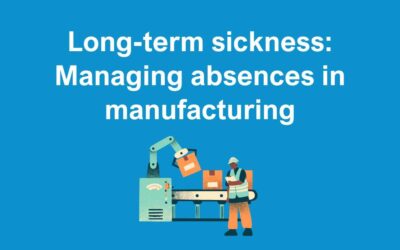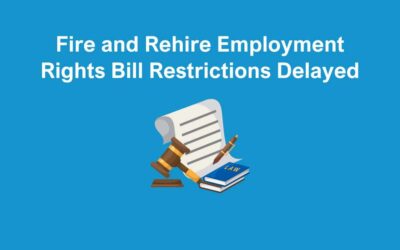Withdrawing an offer of employment is never something an employer wants to do. When you have invested time in the recruitment process and believe you have found the right person for the job, reversing that decision can feel uncomfortable and disruptive. Unfortunately, circumstances can change, information can come to light, or business needs may shift, leaving you unsure about your options.
Understanding when you can lawfully withdraw an offer, and the risks involved, is essential for protecting your organisation. Taking the right steps at the right time will help you manage the situation fairly and reduce the risk of claims. In this article, we will look at when you can withdraw an offer, the legal risks, and how to move forward fairly and safely.
When an Offer of Employment Can Be Withdrawn
In the UK, withdrawing an offer of employment is possible, but the rules depend on whether the offer is conditional or unconditional.
Conditional offers
Most offers are made subject to conditions such as successful references, right to work checks, or background screening. If a candidate does not meet the conditions, you can usually withdraw the offer of employment with less risk, provided the conditions were clearly stated.
Unconditional offers
If you have issued an unconditional offer and the candidate has accepted, you have entered into a contract. Withdrawing the offer at this stage may lead to a claim for breach of contract, even if the employee has not started work.
With this in mind, it’s important that you include conditions in the offer letter before sending to the candidate. We also recommend waiting until all conditions are met before confirming a start date.
Withdrawing an offer of employment, can it be done?
An offer of employment can be withdrawn right up until the candidate has accepted the offer. Even if the offer included conditions, you can still retract it if these were not met. This can include:
- Not having the right qualifications for that role
- Not providing adequate references
- Failing to pass background checks
However, as mentioned above, if you have offered an unconditional offer and it has been accepted, this becomes more complicated.
Potential Risks for Employers
Withdrawing an offer can lead to several legal or employee relations issues.
Breach of contract
A candidate who has accepted an unconditional offer could claim compensation for losses, such as wages they would have earned or money lost by leaving their previous job.
Discrimination claims
Withdrawing an offer for reasons connected to protected characteristics such as age, disability, race, religion, or pregnancy can lead to a discrimination claim. These claims can arise even if the candidate has not yet started work.
Reputational impact
Word spreads quickly, especially on social platforms. Poorly handled withdrawals can damage your employer brand and make future recruitment more difficult.
Can you Withdraw an Unconditional Employment Offer
You must treat a candidate who’s accepted the unconditional offer as an employee. Therefore, you should look at it as ending the employment as that’s technically what the situation is. You should serve a notice period as part of your company policy and the candidate’s contract. The notice period will likely be short as the candidate has not passed their probation yet.
The best way to follow the process correctly and stay on the right side of the law is by getting expert support. Get in touch with our HR experts today.
Best Practice Tips for Employers
To minimise the risk of having to withdraw an offer of employment in the future, consider the following:
- Always make offers conditional and list the conditions clearly
- Complete pre employment checks early in the process
- Provide training to hiring managers on compliant recruitment practices
- Keep detailed records of all decisions made during the hiring process
How The HR Booth Can Help
Navigating the legal and HR implications of withdrawing an offer can be challenging, especially when situations arise quickly or unexpectedly. The HR Booth supports employers across the UK by providing practical, compliant guidance tailored to each situation.
Here is how we can help:
- Review your recruitment documents to ensure offers are legally sound
- Advise on whether you can safely withdraw an offer of employment
- Draft professional withdrawal letters and communications
- Support you through difficult conversations with candidates
- Help you develop more robust recruitment and checking processes
- Provide ongoing HR support to reduce risk in future hiring
Our team ensures you follow the correct procedures while protecting your business and maintaining a positive employer brand.
Final Thoughts
Withdrawing an offer of employment is sometimes unavoidable, but it must be handled with care. Understanding the legal position and taking a structured approach can help protect your organisation. If you need professional guidance or want support managing the process, The HR Booth is here to help.







